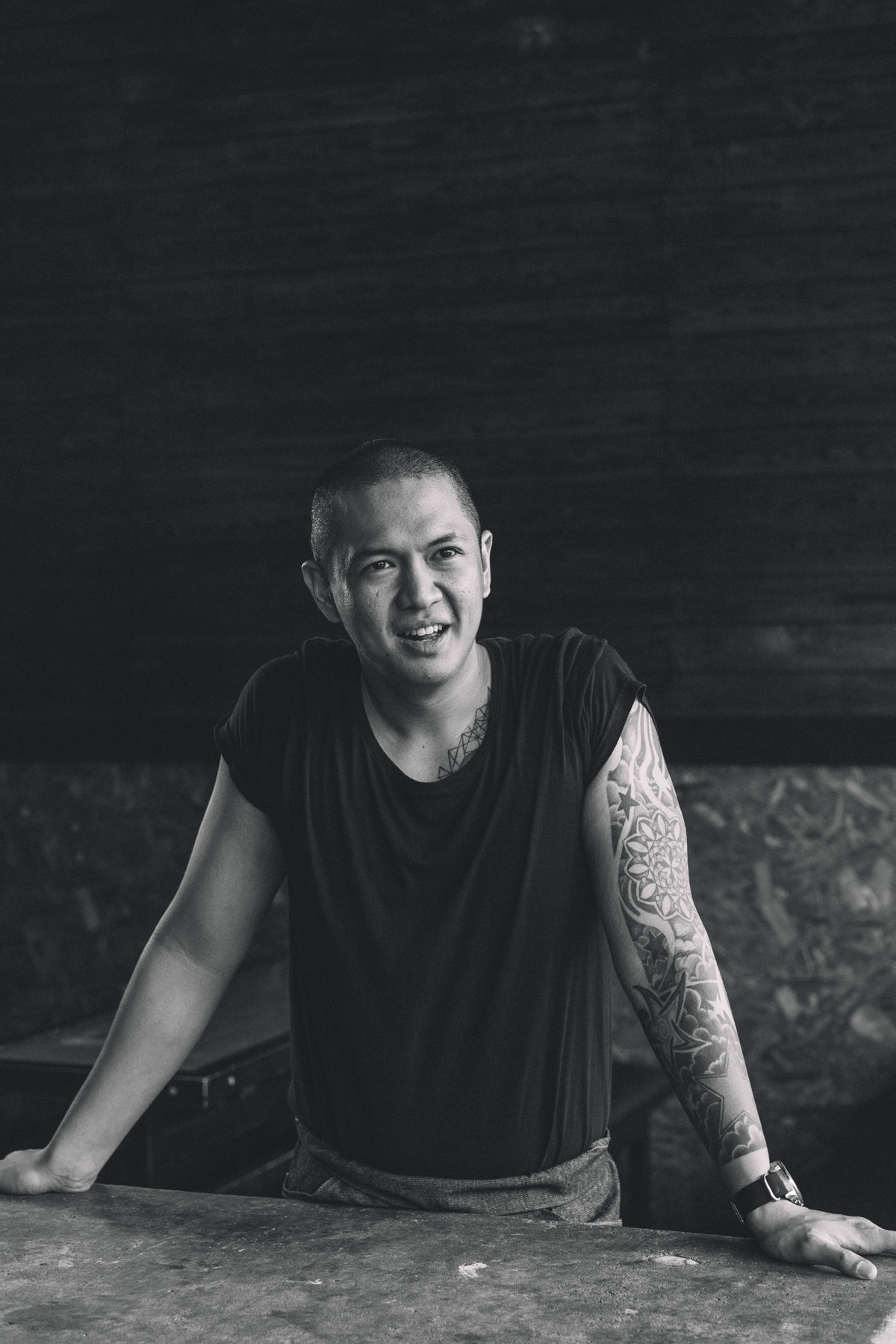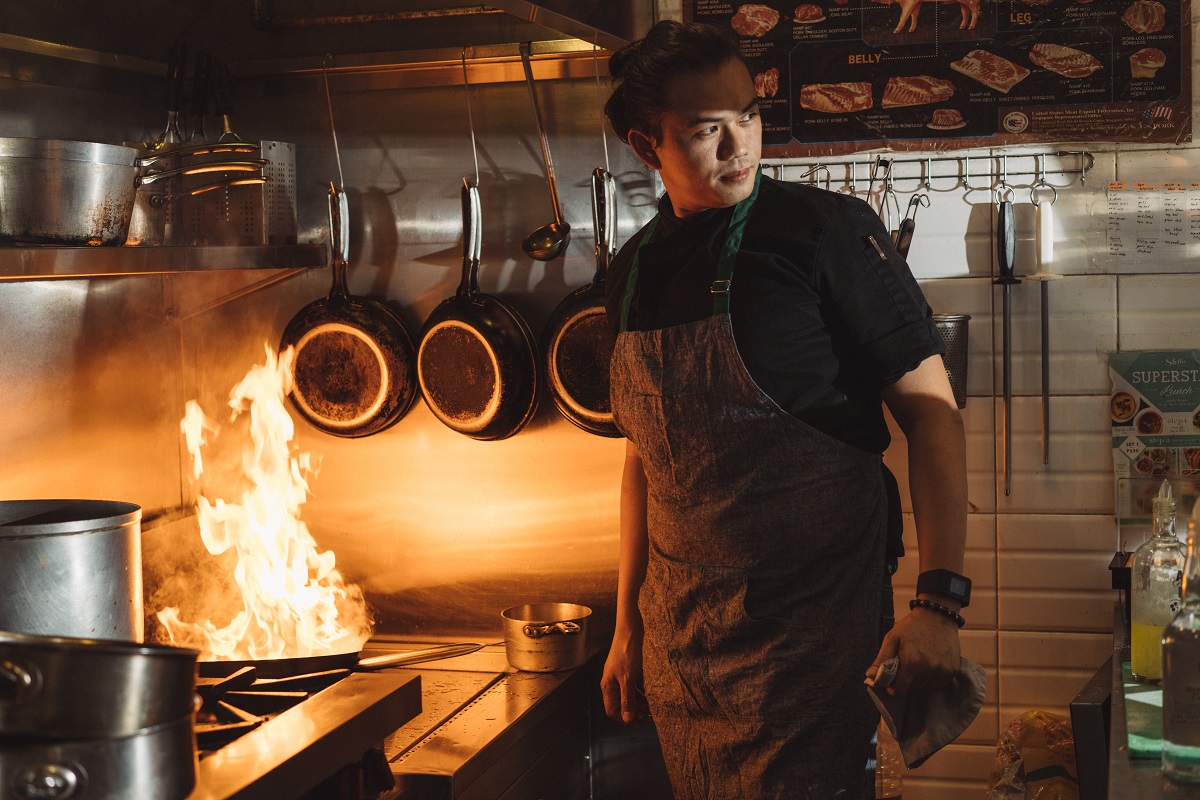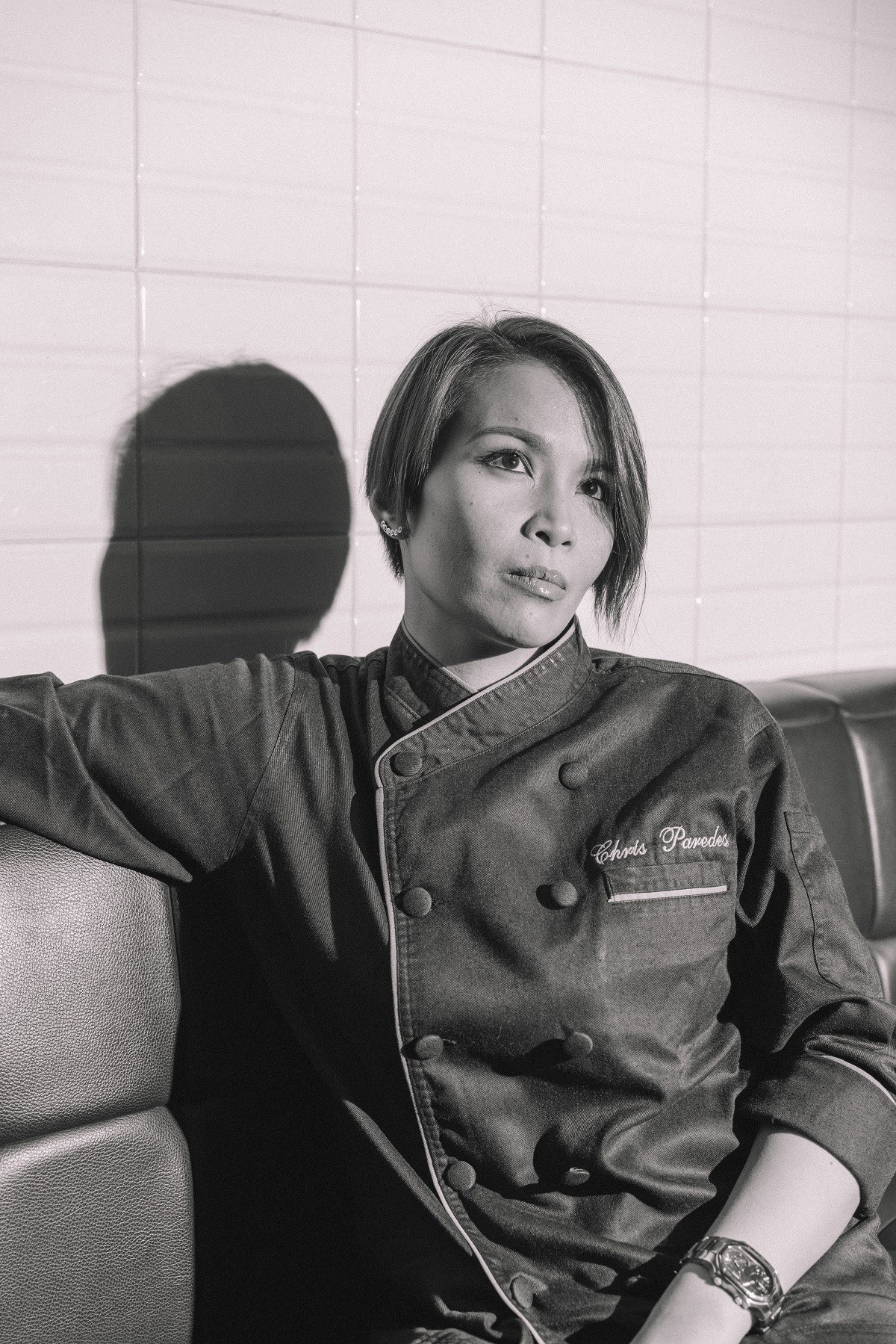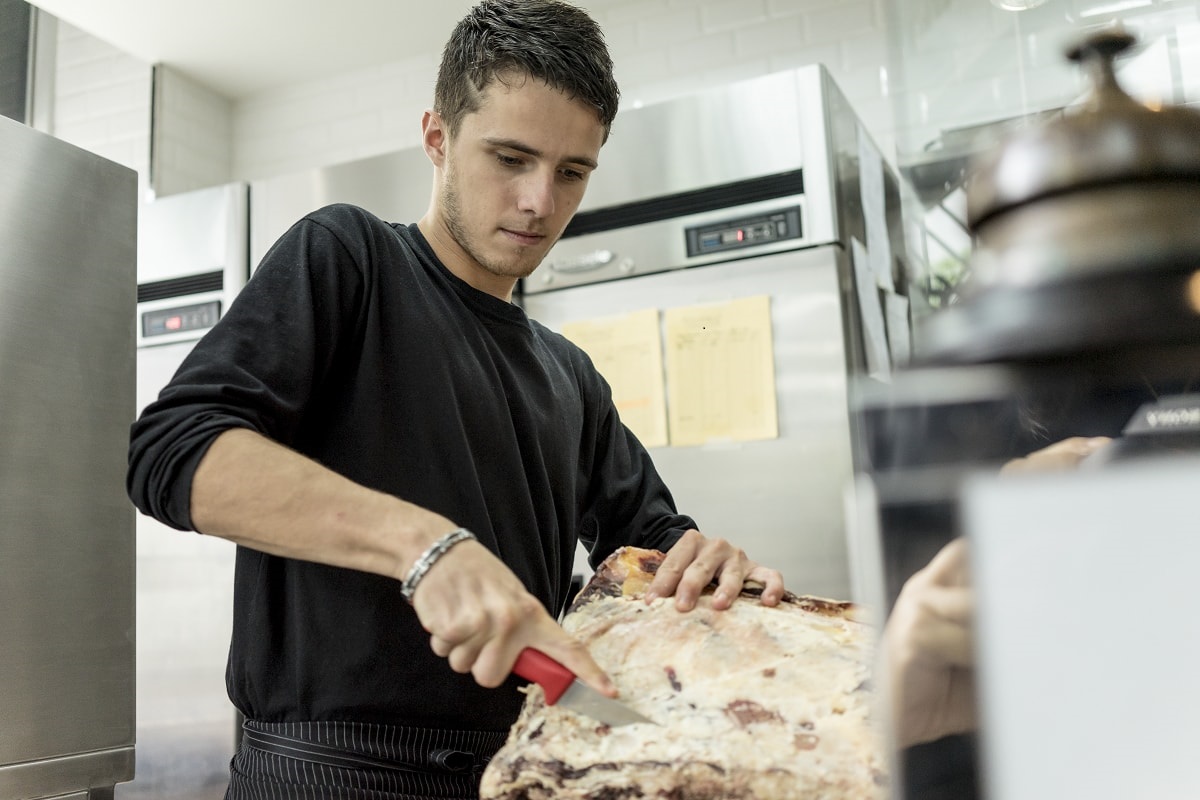Often, only one word exists to define chefs: paradox.
Chefs thrive to create simple dishes that aren’t necessarily simple to make. They churn out innovative menus while dealing with a lack of sleep and crazy work hours. And they are obsessed with perfection at the expense of, oftentimes, their sanity. The fact that opening a restaurant, getting praise, or finding out that business is growing are direct results of incredible distress is a scary reality.
Chefs are hardly outsiders where grotesque imagery is concerned though. Many have toyed with foul mouths, bleeding hearts, fractured bones, pools of tears, and, in certain cases, drug use and psychological issues. In his 2000 tell-all “Kitchen Confidential,” celebrity chef Anthony Bourdain revealed the darker side of the industry as well as his drug history in graphic detail, which includes sending a Spanish-speaking busboy to get heroin.
“We were high all the time, sneaking off to the walk-in at every opportunity to ‘conceptualize.’ Hardly a decision was made without drugs,” he writes in the Happy Time chapter. In recent times, the arrest of former Top Chef victor Paul Qui in March over alleged assault and drug use demanded a long hard look at how the industry rewards talents like Qui.
Physical crisis

Francis Lim seems to have experienced everything. This tattooed swashbuckler has relied on his culinary instincts and gambled a lot in all his years in the business to establish Nav and Tipple & Slaw and, lately, sit with entrepreneurs for their restaurant ambitions. But he explains that some aspiring chefs ditch their dreams as early as cooking school.
“It’s really not a glorious job. You’re dealing with fire, sharp objects, things that are hazardous to your health, smoke, blood, and dirty things.” For young Lim, though, the choice was clear: Stay the course and risk withstanding the firestorm. Literally.
For some chefs, the attrition isn’t just physical. Michelin-starred chef William Mahi admits he has to get in this state where he is really tired to create, say, innovative dishes. “it’s a very difficult exercise.”
“There was a time when there were so many people at People’s Palace, where I used to work. The restaurant could hold around 200 people and we had a really small kitchen, sized like a studio bedroom. It was so smoky and I really couldn’t breathe,” he says.
Though he has had lung and allergy problems since, nowadays, it’s a different kind of burning that has resurfaced after four years. “I’m back to smoking for a month now,” Lim says with a smile, “but I’m planning to stop again. I have sore throat because of my acid reflux, which is triggered by my stress and anxiety.”
Don’t speak
As a young man, Raintree Group’s corporate chef Kalel Chan didn’t intend to become a chef, but the pull of the kitchen pressure proved too exciting to pass up. Like Lim, he treads familiar ground when it comes to dealing with tension in the workplace.

“I try to cut it now but when I smoke, it’s usually when I’m super stressed,” he says, in addition to having a bad back, which started manifesting itself three years ago, all while managing over 10 restaurants and a few more opening this year.
It’s easy to overlook the struggles chefs face from an outside perspective, but Chan’s openness about an incident where he totally lost his cool hints at the truth that even good guys go bad. While working with a local staff for a resort hotel in Bicol isn’t uncommon, it’s not as clear-cut as it looks, such as when Chan had to endure former supermarket baggers and illegal fishermen in his kitchen during a simulation.
“It’s really not a glorious job. You’re dealing with things that are hazardous to your health,” says chef Francis Lim.
“Kasama ko lang was chef David [Pardo de Ayala] at that time. In the end I was the only chef cooking in the kitchen, lahat sila [local staff] nakatingin lang. That was two to three orders pa lang and then may maling order,” he warns. “Sunud-sunod na ‘yon. Kinuha ko ‘yong ticket sabi ko, ‘P******** mo, di ka marunong magbasa! Tapos dinikit ko ‘yong ticket sa ulo niya. Nakita ako ni chef David. ‘Chef, whats the problem? I think you need to take a break.’ Nakalimutan ko na nasa kitchen ako. Naglabas ako ng yosi, paglabas ko ng kitchen, ubos na.”
While the emotional stakes inside the kitchen are high, scenarios like this beg the question of whether volatility is a byproduct of pressure from the restaurant industry’s structure. Clearly, chefs don’t always undergo constant upheavals, but these are the moments of reckoning that remind the industry of the kind of weight it puts on chefs to be on top of their game.
As Chan puts it, “After ng break mo na lang maisip mag-sorry,” he says with an apologetic smile.
No escape

Invariably, no one is excused from this type of environment according to chocolatier Christine Paredes. “You won’t feel like a lady because when you’re in the kitchen, if you need to carry something heavy, you find a way to carry it.” Away from the heat of the usual kitchen, Paredes’ expertise in chocolate enables her to work in a cool space, but, as if correcting the disparity, things get messy every November and December.
“You won’t feel like a lady because when you’re in the kitchen, if you need to carry something heavy, you find a way to carry it,” says chef Christine Paredes.
“That’s peak season for weddings and big orders,” she says. “Last year, I got really sick. I was coughing incessantly and I lost a lot of weight. There were times when I would work from 9 a.m. to 3 a.m.” Impossible work schedules, which could go on for 15 hours a day, six days a week, put chefs at a huge disadvantage—both professionally and personally.
Lim also recognized the toll it took on his relationships. “I had a girlfriend back then and I could see her lang after my shifts, and she had a regular day job, so she had to really keep up.”
Paredes echoes a similar sentiment. “There was a time when I would leave for two weeks straight, come back home just to get a new set of clothes, or times when I couldn’t even determine where I was. Pag gising mo sa umaga, ‘Am I in Iloilo, Cebu, or Bicol?’ Masarap, but it gets exhausting.”
Perhaps it’s their innate resilience or that the protective effects of estrogen allow women to deal with stress better, based on a State University of New York at Buffalo study. But there’s also a sense of foreboding for female chefs in general who may still deal with sexism behind the stove.
“I guess to each their own,” says Paredes. “Women are very open and are not afraid of being vulnerable. But I think it takes time for men to open up more because in a country where there is overflowing machismo, there’s that apprehension to open up so as not to be judged.”
C’est la vie

Being talented sometimes works like a double-edged sword. For someone like Jonathan Petit, the challenges are different. The man appointed by chef Akrame Benallal to lead (the now-defunct) Atelier Vivanda Manila has had to grow up faster than expected.
Only 21, Petit earned his stripes when he displayed his skills in both Atelier Vivanda Paris’ kitchen and front of the house, enough for him to helm Benallal’s second Asian branch. While Petit acknowledges the good opportunity, the idea of moving halfway around the world was met with a sea of contemplation.
“It’s so hard to leave your country, family, and friends—to leave it all at 21,” he says. “It was very difficult because when I came here I didn’t speak English at all. Well, maybe a little bit.” Seven months into his stint, the French executive chef has slowly gained confidence as he navigates a culture that is still on the fence about how steak should be properly enjoyed. To go with all the hazards of distance, expat chefs like Petit must also endure cross-cultural boundaries that are, at times, amusing exercises.
“When I say something to my Filipino team like, ‘Do that,’ they say yes. But [when I check on them after], that’s not what I want or what I showed,” he says, smiling. “I have to be behind them every time. They always say yes, but they’re afraid to ask more questions.”
Aiming high
These are just a few examples of the power the restaurant culture wields over chefs; to be constantly under pressure to come out with better dishes and new ideas grinds you down. Which is why coping mechanisms like alcohol are quite common. But as much as tequila, vodka, and beer act as self-medications, they can also bolster bonds. “I drink with my staff. Sometimes that’s your connection to your people,” says Chan.
Cooking isn’t an easy way to make a living, nor is it a ticket to a comfortable life. All jobs come with sacrifices. Relationships will suffer. Health will deteriorate. Sanity will be pushed to its limits. That is just one part of the multifaceted life of a chef. There are panic attacks and dead ends, but there are also relief and a sense of clarity.
In so many ways, a chef’s ambitions and convictions collide in the kitchen but they never quite come into focus unless one has the guts to withstand the heat.
Originally published in F&B Report Vol. 13 No. 4






Yes a lots of sacrifice but when you see their happy face upon their first bite you feel satisfied